Eight Questions to Re-evaluate What Retirement Means Now
Over the last year, chances are that you have found yourself discussing how the pandemic has led you, or your friends and family, to re-evaluate “what really matters in life.”
If you are quickly approaching retirement, these are not just philosophical questions but ones of real practical and financial importance. In fact, they may be underpinning the financial assumptions in your savings and investment plans. With this in mind, consider how these eight key questions about retirement fit with your current state of thinking and the suggested financial considerations:
- When will it happen? This is the one that the pandemic may have challenged the most. For instance, do you now have a desire to stop work earlier?
Consider: Don’t rely on your emotions or assumptions. Running financial scenarios including income planning after retirement can give you some “real world” options to consider.
- Will you work? In normal times, it can be hard to imagine stopping work altogether, and many Canadians express a desire to continue working in some capacity during retirement. After lockdowns, you may now have a better idea about how you will respond to a lot of time spent at home.
Consider: Realistically evaluate what you might do for work post-retirement and make sure any new ideas are reflected in your financial plans.
- Will you move? Travellers and snowbirds had their seasonal patterns severely disrupted over the last two years. All of us had to deal with much more time spent at home, for better or worse. If downsizing was a part of your retirement thinking, how do you feel now?
Consider: Revisit your assumptions about housing, including factoring in the latest real estate values of both your current home and where you might move to.
- What is your passion?
Many retirement experts have long argued that having a sense of purpose – community, faith, work, family – is key to well-being in retirement. If you have never considered this, now is the time. If you have, did your priorities and passions shift recently?
Consider: Every purpose or activity has financial implications, so think about what you need to support them in your income plans.
- Who do you want around you? Missing loved ones has been a constant refrain throughout pandemic restrictions. Do you have a new emphasis on being nearer to those you care about?
Consider: what financial resources are needed to ensure you are literally where you want to be in retirement?
- Where will you go? Many retirement plans involve visiting or even moving to locations outside of Canada, including places with low costs and high adventure. Now, however, COVID-19 restrictions, health care facilities, and travel medical insurance issues may have all contributed to a different view of where you want to go.
Consider: Check out the latest health and insurance information on destinations that are in your plans.
- Why does it matter to you? Sometimes the elements of our retirement vision are just a continuation of what’s already in our lives or involve things that you believe you are expected to want in retirement. The past year may have led to a much deeper reimagining of meaning and value in your life.
Consider: Don’t be afraid to challenge all the assumptions in your previous plans in order to create a retirement plan that matches your true desires.
- How will you make it happen? A failure to plan is planning to fail, goes the old cliché. Consider: Bring your current thinking and goals to your financial and legal advisors. They have the skills and tools to put practical and financial strategies to work to help make life goals a reality.
Planning for your retirement years is only useful if those plans are built on what you really want in life. Once you know that you can build plans – including investment strategies – that are truly useful and can
help make those desires a reality. If your goals have changed, it’s time for an investment review.
Insurance products and services are offered by life insurance licensed advisors through Chevron Wealth Preservation Inc., a wholly owned subsidiary of Echelon Wealth Partners Inc. This material is provided for general information and is not to be construed as an offer or solicitation for the sale or purchase of life insurance products or securities mentioned herein. Every effort has been made to compile this material from reliable sources however no warranty can be made as to its accuracy or completeness. Before acting on any of the above, please seek individual financial advice based on your personal circumstances. Please note that only Echelon Wealth Partners is a member of CIPF and regulated by IIROC; Chevron Wealth Preservation is not.
Forward-looking statements are based on current expectations, estimates, forecasts and projections based on beliefs and assumptions made by author. These statements involve risks and uncertainties and are not guarantees of future performance or results and no assurance can be given that these estimates and expectations will prove to have been correct, and actual outcomes and results may differ materially from what is expressed, implied or projected in such forward-looking statements.
The opinions expressed in this report are the opinions of the author and readers should not assume they reflect the opinions or recommendations of Echelon Wealth Partners Inc. or its affiliates. Assumptions, opinions and estimates constitute the author’s judgment as of the date of this material and are subject to change without notice. We do not warrant the completeness or accuracy of this material, and it should not be relied upon as such. Before acting on any recommendation, you should consider whether it is suitable for your particular circumstances and, if necessary, seek professional advice. Past performance is not indicative of future results. These estimates and expectations involve risks and uncertainties and are not guarantees of future performance or results and no assurance can be given that these estimates and expectations will prove to have been correct, and actual outcomes and results may differ materially from what is expressed, implied or projected in such forward-looking statements. Echelon Wealth Partners Inc. is a member of the Investment Industry Regulatory Organization of Canada and the Canadian Investor Protection Fund.



Call our office today for a private consultation about your Beyond Wealth needs.
All Rights Reserved | Ottawa Wealth Management
Please note that only Echelon Wealth Partners is a member of CIPF and regulated by IIROC; Chevron Wealth Preservation Inc. is not. *Insurance Products provided through Chevron Preservation Inc.



